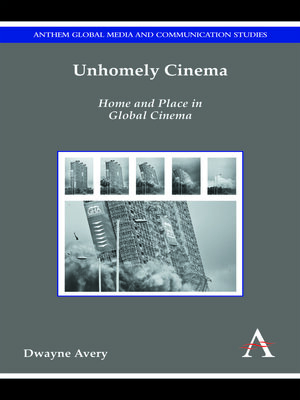Unhomely Cinema
ebook ∣ Home and Place in Global Cinema · Anthem Global Media and Communication Studies
By Dwayne Avery

Sign up to save your library
With an OverDrive account, you can save your favorite libraries for at-a-glance information about availability. Find out more about OverDrive accounts.
Find this title in Libby, the library reading app by OverDrive.



Search for a digital library with this title
Title found at these libraries:
| Library Name | Distance |
|---|---|
| Loading... |
Representations of troubled and inhospitable domestic places are a common feature of many cinematic narratives. "Unhomely Cinema" explores how the unhomely nature of contemporary film narrative provides an insight into what it means to dwell in today's global societies. Providing analyses of a variety of film genres – from Michel Gondry's comedy "Be Kind Rewind" to Laurent Cantet's eerie suspense thriller "Time Out" – "Unhomely Cinema" presents an engaging discussion of some of the most pertinent social and cultural issues involved in the question of "making home" in contemporary societies.
|"Unhomely Cinema" explores how the unhomely nature of contemporary film narrative provides an insight into what it means to dwell in today's global societies. Drawing from Freud's concept of the uncanny – that frightful and inexplicable experience of the home as foreign and strange – the unhomely speaks to the spatial dislocation, transience, homelessness and disempowerment symptomatic of contemporary global societies.
While uncanny homes are traditionally associated with the science fiction and horror genres, "Unhomely Cinema" shows how an array of film genres – from Michel Gondry's comedy "Be Kind Rewind" to Laurent Cantet's eerie suspense thriller "Time Out" – use the figure of the precarious home to engage with some of the most pertinent social and cultural issues involved in the question of "making home."
Encounters with the unhomely often result in the painful loss of home, but the unhomely can also offer an ethics of dwelling, whereby the impossibility of narrative closure represents new and more hopeful ways of dwelling in the world.







